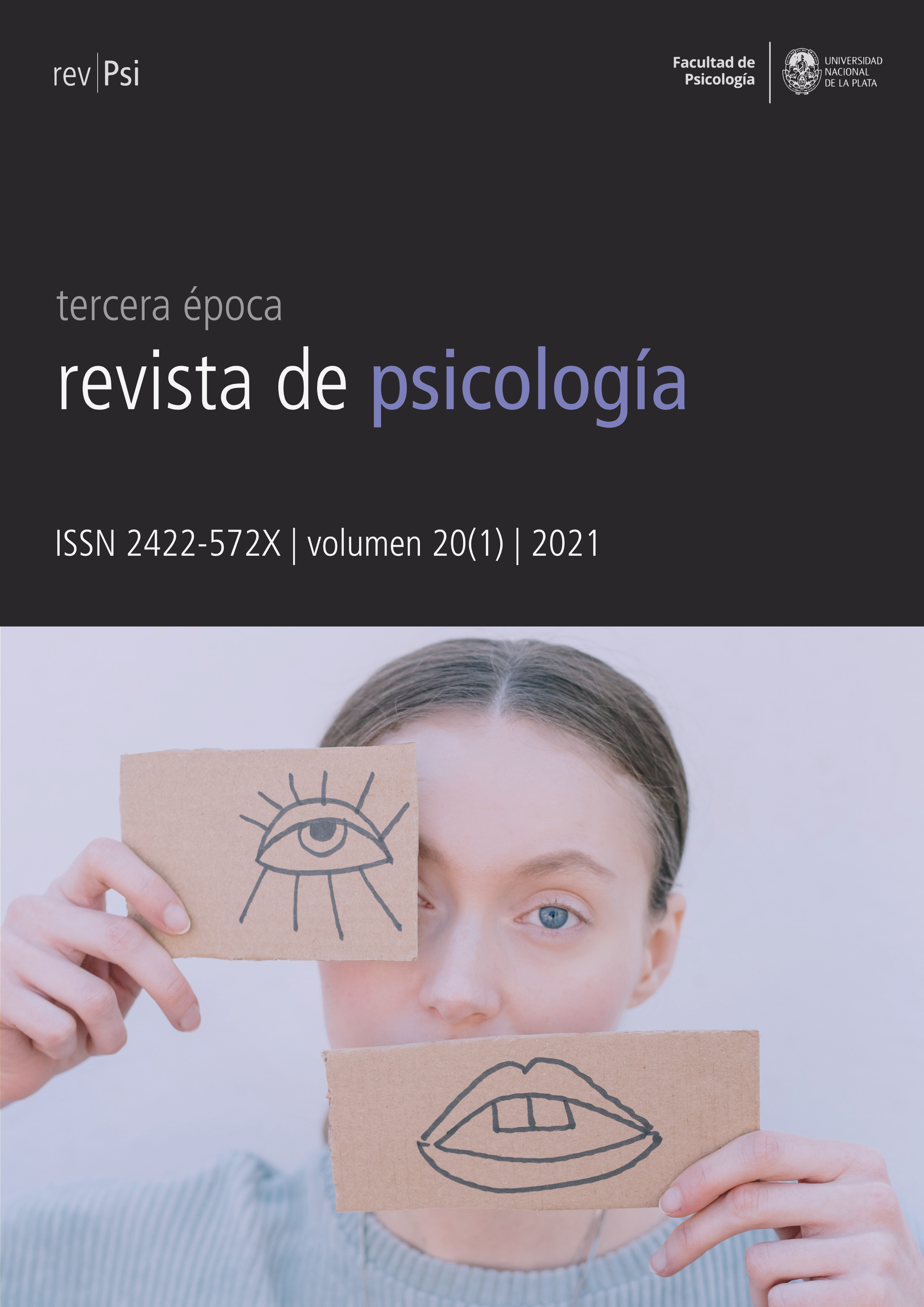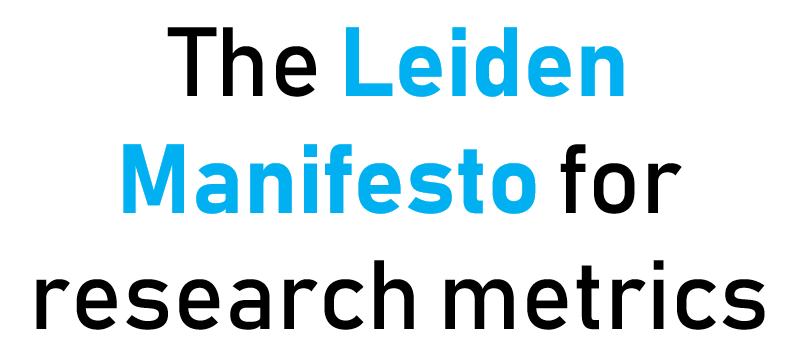Sentimientos existenciales y memoria corporal: dos casos en filosofía de la psiquiatría
DOI:
https://doi.org/10.24215/2422572Xe091Palabras clave:
Sentimientos existenciales, Memoria corporal, Fenomenología, PsiquiatríaResumen
La pregunta que guía este trabajo se refiere a la relación entre los fenómenos de la afectividad y la memoria a partir de su configuración corporal. Mi objetivo es evaluar la relación entre estos dos fenómenos bajo los conceptos de sentimientos existenciales y memoria corporal tal como se desarrollan en la fenomenología contemporánea. Formulado en el marco actual de interacción entre la fenomenología y la psiquiatría, el concepto de sentimientos existenciales designa una importante categoría descriptiva relacionada con la estructura corporal de nuestra experiencia afectiva, y sugiere un papel central en la forma en que ciertos sentimientos corporales influyen en la autodescripción (Ratcliffe, 2005; 2008; 2015). Por otro lado, la noción de memoria corporal describe cómo las disposiciones, capacidades y hábitos dan forma a nuestra experiencia sin necesidad de un recuerdo explícito (Fuchs, 2012; 2018). Sostengo que el elemento corporal que se destaca en la formulación de estos dos conceptos permite un acercamiento fructífero a los aspectos condicionantes históricos y afectivos de nuestra experiencia. Al final del trabajo examino dos casos psiquiátricos que explicítan la interacción mutua entre estos fenómenos a nivel prerreflexivo, y destaco el papel determinante de estos fenómenos en la aparición de experiencias anómalas.
Referencias
American Psychiatric Association. (2013). Diagnostic and statistical manual of mental disorders (5th ed.). American Psychiatric Association.
Anderson, M. & Hanslmayr, S. (2014). Neural mechanisms of motivated forgetting. Trends in Cognitive Sciences, 18, (6) 279–292. https://doi.org/10.1016/j.tics.2014.03.002
Besche-Richard, C. (2013). Explicit and implicit memory in depressive patients. Review of the literature. Psychology, 4, (11a), 4-10. https://doi.org/10.4236/psych.2013.411A002
Blankenburg, W. (2001). First steps toward a psychopathology of "common sense". Philosophy, Psychiatry, and Psychology, 8 (4), 303-315. https://doi.org/10.1353/ppp.2002.0014
Caravà, M. (2020). An exploration into enactive forms of forgetting. Phenomenology and the Cognitive Sciences. https://doi.org/10.1007/s11097-020-09670-6
Carel, H. (2013) Bodily doubt. Journal of Consciousness Studies, 20 (7–8). 178–197.
Carel, H. (2016). Phenomenology of illness. Oxford University Press.
Casey, E. (2000). Remembering: A phenomenological study. Indiana University Press.
Fuchs, T. (2003). The phenomenology of shame, guilt and the body in body dysmorphic disorder and depression. Journal of Phenomenological Psychology, 33, 223–243.
Fuchs, T. (2011). Body memory and the unconscious. Phaenomenologica, 199, 69– 82.
Fuchs, T. (2012). The phenomenology of body memory. In S. Koch, T. Fuchs, M. Summa, & C. Müller, (Eds.) Body memory, metaphor and movement (pp. 9– 22). John Benjamins.
Fuchs, T. (2018). Memória corporal e história de vida. In Fuchs, T. Para uma psiquiatria fenomenológica: Ensaios e conferências. Tradução de Marco Antônio Casanova. Via Verita.
Gallagher, S. & Zahavi, D. (2012). The phenomenological mind. Routledge.
Goldie, P. (2000) The emotions: A philosophical exploration. Clarendon Press.
Gross, J. (2002). Emotion regulation: Affective, cognitive, and social consequences. Psychophysiology, 3(39), 281–291. https://doi.org/10.1017/S0048577201393198
Hardy, A. (2017). Pathways from trauma to psychotic experiences: A theoretically informed model of posttraumatic stress in psychosis. Frontiers in Psychology, 8, 697. https://doi.org/10.3389/fpsyg.2017.00697
Heidegger, M. (2001). Zollikon seminars: Protocols, conversations, letters. Northwestern Univ. Press.
Kensinger, E. A., & Schacter, D. L. (2008). Memory and emotion. In M. Lewis, J. M. Haviland-Jones, & L. F. Barrett (Eds.), Handbook of emotions (pp. 601–617). Guilford.
Laing, R.D. (1990). The divided self: An existential study in sanity and madness. Penguin Books.
Manzotti, R. (2012). An externalist approach to existential feelings: Different feelings or different objects? In J. Fingerhut & S. Marienberg (Eds.), Feelings of being alive (pp. 79–99). De Gruyter.
McIlwain, D., Taylor, A., & Geeves, A. (2010). Fullness of feeling: Reflection, rumination, depression and the specificity of autobiographical memories. Proceedings of the 9th Conference of the Australasian Society for Cognitive Science. (pp. 238-244). Sydney.
Michaelian, K. & Sutton, J. (2017). Memory. The Stanford Encyclopedia of Philosophy. Edward N. Zalta (ed.). https://plato.stanford.edu/archives/sum2017/entries/memory
Morgan, C. & Gayer‐Anderson, C. (2016), Childhood adversities and psychosis: evidence, challenges, implications. World Psychiatry, 15, 93-102. https://doi.org/doi:10.1002/wps.20330
Nolen-Hoeksema, S. (2000). The role of rumination in depressive disorders and mixed anxiety/depressive symptoms. Journal of Abnormal Psychology, 109(3), 504-11. https://doi.org/10.1037/0021-843X.109.3.504
Parnas, J. & Zahavi, D. (2000). The link: Philosophy-psychopathology-phenomenology. In D. Zahavi (Ed.) Exploring the self. Philosophical and psychopathological perspectives on self-experience. John Benjamins.
Ratcliffe, M. (2005). The feeling of being. Journal of Consciousness Studies, 12, (8–10), 45–63.
Ratcliffe, M. (2008). Feelings of being. Oxford University Press.
Ratcliffe, M. (2015). Experiences of depression. Oxford University Press;
Ratcliffe, M. (2017). Selfhood, schizophrenia, and the interpersonal regulation of experience. In C. Durt, T. Fuchs, & C. Tewes (Eds.) Embodiment, enaction, and culture: Investigating the constitution of the shared world. The MIT Press.
Read et al., (2005). Sexual and physical abuse during childhood and adulthood as predictors of hallucinations, delusions and thought disorder. Psychology and Psychotherapy: Theory, Research and Practice, 76, 1–22. https://doi.org/10.1348/14760830260569210
Reis, R. (2016). A abordagem fenomenológico-existencial da enfermidade: Uma revisão. Revista Natureza Humana, 18(1).
Reisberg & Hertel, (2004). Preface. In D. Reisberg & P. Hertel (Eds.) Memory and emotion. Oxford University Press.
Reisberg, D. & Heuer, F. (2004). Memory for emotional events. In D. Reisberg & P. Hertel (Eds.) Memory and emotion. Oxford University Press.
Riva, G. (2018). The neuroscience of body memory: From the self through the space to the others. Cortex, 104, 241–260. https://doi.org/10.1016/j.cortex.2017.07.013
Roediger III, H.L., Zaromb, F.M., & Lin, W. (2017). A typology of memory terms. In R. Menzel (Ed.). Learning theory and behavior [Vol. 1 of Learning and memory: A comprehensive reference]. Academic Press.
Rowlands, M. (2016). Memory and the self: Phenomenology, science and autobiography. Oxford University Press.
Saarinen, J. (2018). A critical examination of existential feeling. Phenomenology and the Cognitive Sciences, 17, 363–374. https://doi.org/10.1007/s11097-017-9512-4;
Sass, L. & Parnas, J. (2003). Schizophrenia, consciousness, and the self. Schizophrenia Bulletin, 29(3), 427-444. https://doi.org/10.1093/oxfordjournals.schbul.a007017
Schacter, D. (1987). Implicit memory: History and current status. Journal of Experimental Psychology: Learning Memory and Cognition, 13(3), 501-518. https://doi.org/10.1037/0278-7393.13.3.501
Sheets-Johnstone, M. (2012). Kinesthetic memory: Further critical reflections and constructive analyses. In S. Koch, T. Fuchs, M. Summa, & C. Müller, (Eds.) Body memory, metaphor and movement (pp. 43-72). John Benjamins.
Sutton, J., & Williamson, K. (2014). Embodied remembering. In L. Shapiro (Ed.) The Routledge handbook of embodied cognition. Routledge
Trakas, M. (no prelo). No trace beyond their name? Affective memories, a forgotten concept. L'année psychologique / Topics in Cognitive Psychology.
Watkins, P. (1996). Unconscious mood-congruent memory bias in depression. Journal of Abnormal Psychology, 105(1), 34-41. https://doi.org/10.1037/0021-843X.105.1.34
Watkins, P. (2002). Implicit memory bias in depression. Cognition and Emotion, 16 (3), 381-402. https://doi.org/10.1080/02699930143000536
Descargas
Publicado
Número
Sección
Licencia
![]()
Los autores/as que publiquen en esta revista aceptan las siguientes condiciones:
- Los autores/as conservan los derechos de autor y ceden a la revista el derecho de la primera publicación, con el trabajo registrado con la licencia de atribución de Creative Commons, que permite a terceros utilizar lo publicado siempre que mencionen la autoría del trabajo y a la primera publicación en esta revista.
- Los autores/as pueden realizar otros acuerdos contractuales independientes y adicionales para la distribución no exclusiva de la versión del artículo publicado en esta revista (p. ej., incluirlo en un repositorio institucional o publicarlo en un libro) siempre que indiquen claramente que el trabajo se publicó por primera vez en esta revista.
- Se permite y recomienda a los autores/as a publicar su trabajo en Internet (por ejemplo en páginas institucionales o personales) antes y durante el proceso de revisión y publicación, ya que puede conducir a intercambios productivos y a una mayor y más rápida difusión del trabajo publicado (veaThe Effect of Open Access).




































